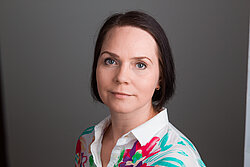Tangible cultural heritage, which consists of castles, manors and churches, their surrounding parks, landscapes, roads, farmsteads and other cultural objects, is an essential part of national identity of each country. Considering the existing state of the monuments of material culture and cultural environment (many objects are close to destruction), new qualified specialists are needed who have extensive knowledge and the desire to participate in the preservation of cultural heritage not only in Latvia and ensure sustainability for both us and future generations. The University of Latvia, in cooperation with the Latvian Academy of Arts, has created an interdisciplinary academic bachelor study program "Research and protection of Cultural and Environmental Heritage".
The study program aims to prepare specialists at the international level who can comprehensively solve issues related to the restoration, preservation and development of cultural heritage objects (historical buildings, manors, castles, churches, parks, natural objects, etc.). The study program prepares students for research and professional activities in the field of cultural and environmental heritage, creating the content of cultural heritage studies based on an interdisciplinary approach and promoting the development of cultural and envrinomental heritage as a direction of higher education and scientific research worldwide.
During the study process, it is possible to acquire the knowledge, skills and competencies necessary for identifying, researching, managing and protecting objects of tangible cultural and envrinomental heritage, ensuring its sustainable and economically justified maintenance. The study courses of the programme are tuited by the lecturers from the Faculty of Geography and Earth Sciences, Faculty of Chemistry, Faculty of Humanities, Faculty of History and Philosophy of the University of Latvia, as well as lecturers from the Latvian Academy of Arts.
Study program director

Researcher Agnese Kukela

The video cannot be viewed because you have not selected functional cookies.
To view the video, please enable functional cookies in your cookie settings.
The basic structure of the study program consists of four thematic modules:
1. Environmental sciences - ideas, operational methods and research problems of environmental sciences in a broad sense, including the topics of chemical sciences and earth sciences;
2. Environmental science and cultural heritage - the role of environmental sciences in identifying, researching and preserving cultural heritage;
3. Theory and methods in cultural and environmental heritage - operating principles of the cultural and envrinomental heritage industry, industry guidelines, legal regulation and methods of preservation of cultural heritage objects;
4. Humanities and arts - the context of humanities knowledge in philosophy, language studies, history, cultural history and specifically in the field of the history of arts.
The labour market of graduates of the study program relates to cultural industries and real estate management companies, including property development, tourism and hospitality, environmental and cultural protection sectors, and scientific research of cultural and environmental heritage. The main area of competencies that determines the competitiveness of graduates of the study program in the labour market is the knowledge, skills and competencies required for managing and protecting material cultural and envrinomental heritage, ensuring its sustainable and economically justified maintenance. It is necessary to emphasize that such a set of competencies is not provided by any other study program offered in Latvia. It critically affects the existing material cultural heritage management practice, resulting in degraded cultural monuments and objects.
The main areas in which the employment of graduates of the study program is possible include:
- Management of municipal and private cultural heritage objects, development and implementation of projects for their restoration and development of new areas of use.
- Management of cultural and historical centres of cities, development and implementation of projects for their restoration and development of new areas of use, and support of the tourism sector.
- Management of parks and other objects of culture and landscape, development and implementation of projects for their restoration and development of new areas of use, and attraction of tourism.
- Management of churches and other important cultural and historical buildings.
- Development of new objects in the historical centres of cities.
- Scientific research.
- The development of the direction of cultural and historical tourism, connecting it with the hospitality field.
The support for the creation and implementation of the current study program was expressed by Rēzekne Art and Design High School and Jānis Rozentāls School of Art, as well as potential employers of the graduates – the National cultural heritage administration, UNESCO Latvian National Commission, Vidzeme Planning Region, Kuldīgas County Municipality, Grobiņas County Municipality, Daugavpils Mark Rothko Art Center, Pedvāle Art Park.
Secondary education.

 Academic Centre
Academic Centre